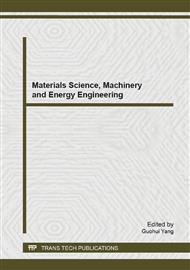p.302
p.306
p.312
p.317
p.323
p.329
p.335
p.341
p.345
Garbage Incineration and Intelligent Fusion Strategy of Secondary Pollution Control
Abstract:
To control the secondary atmosphere pollution produced by exhaust gas in process of garbage incineration, the paper presented a sort of intelligence fusion control strategy in city garbage incineration. In the paper, aimed at the running properties of garbage incinerator and combined the mechanism of garbage combustion and contamination generation, it studied the characteristic of controlled combustion process, proposed a sort of fusion control strategy based on human simulated intelligence for controlled process, constructed the corresponding control algorithm. Finally it took a two order model of combustion process with large lag as an example that is very nearly similar to controlled process characteristic of garbage incineration, and made the contrast experiment of digital simulation respectively by the Smith optimal controller and the presented fusion control algorithm by means of the platform of MATLAB. The response curve of simulation shows that the fusion control algorithm is better than by Smith optimal controller in control effect of anti-jamming performance and control index obviously. The experiment results show that the proposed fusion control strategy is reasonable, feasible and effective for secondary pollution control, and it is high in control precision, better in dynamical and steady quality, and very strong in robustness.
Info:
Periodical:
Pages:
323-328
DOI:
Citation:
Online since:
December 2013
Authors:
Price:
Сopyright:
© 2014 Trans Tech Publications Ltd. All Rights Reserved
Share:
Citation:


